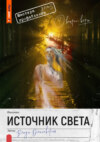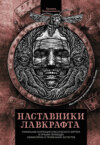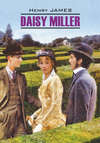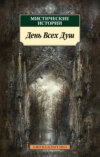Читать книгу: «The Letters of Henry James. Vol. II»
VI
Rye (continued)
(1904-1909)
The much-debated visit to America took place at last in 1904, and in ten very full months Henry James secured that renewed saturation in American experience which he desired before it should be too late for his advantage. He saw far more of his country in these months than he had ever seen in old days. He went with the definite purpose of writing a book of impressions, and these were to be principally the impressions of a "restored absentee," reviving the sunken and overlaid memories of his youth. But his memories were practically of New York, Newport and Boston only; to the country beyond he came for the most part as a complete stranger; and his voyage of new discovery proved of an interest as great as that which he found in revisiting ancient haunts. The American Scene, rather than the letters he was able to write in the midst of such a stir of movement, gives his account of the adventure. On the spot the daily assault of sensation, besetting him wherever he turned, was too insistent for deliberate report; he quickly saw that his book would have to be postponed for calmer hours at home; and his letters are those of a man almost overwhelmed by the amount that is being thrown upon his power of absorption. But the book he eventually wrote shews how fully that power was equal to it all—losing or wasting none of it, meeting and reacting to every moment. Ten months of America poured into his imagination, as he intended they should, a vast mass of strange material—the familiar part of it now after so many years the strangest of all, perhaps; and his imagination worked upon it in one unbroken rage of interest. He was now more than sixty years old, but for such adventures of perception and discrimination his strength was greater than ever.
He sailed from England at the end of August, 1904, and spent most of the autumn with William James and his family, first at Chocorua, their country-home in the mountains of New Hampshire, and then at Cambridge. The rule he had made in advance against the paying of other visits was abandoned at once; he was in the centre of too many friendships and too many opportunities for extending and enlarging them. With Cambridge still as his headquarters he widely improved his knowledge of New England, which had never reached far into the countryside. At Christmas he was in New York—the place that was much more his home, as he still felt, than Boston had ever become, yet of all his American past the most unrecognisable relic in the portentous changes of twenty years. He struck south, through Philadelphia and Washington, in the hope of meeting the early Virginian spring; but it happened to be a year of unusually late snows, and his impressions of the southern country, most of which was quite unknown to him, were unfortunately marred. He found the right sub-tropical benignity in Florida, but a particular series of engagements brought him back after a brief stay. It had been natural that he should be invited to celebrate his return to America by lecturing in public; but that he should do so, and even with enjoyment, was more surprising, and particularly so to himself. He began by delivering a discourse on "The Lesson of Balzac"—a closely wrought critical study, very attractive in form and tone—at Bryn Mawr College, Pennsylvania, and was immediately solicited to repeat it elsewhere. He did this in the course of the winter at various other places, so providing himself at once with the means and the occasion for much more travel and observation than he had expected. By Chicago, St. Louis, and Indianapolis he reached California in April, 1905. "The Lesson of Balzac" was given several times, until for a second visit to Bryn Mawr he wrote another paper, "The Question of our Speech"—an amusing and forcible appeal for care in the treatment of spoken English. The two lectures were afterwards published in America, but have not appeared in England.
The beauty and amenity of California was an unexpected revelation to him, and it is clear that his experience of the west, though it only lasted for a few weeks, was fully as fruitful as all that had gone before. Unluckily he did not write the continuation of The American Scene, which was to have carried the record on from Florida to the Pacific coast; so that this part of his journey is only to be followed in a few hurried letters of the time. He was soon back in the east, at New York and Cambridge again, beginning by now to feel that the cup of his sensations was all but as full as it would hold. The longing to discharge it into prose before it had lost its freshness grew daily stronger; a year's absence from his work had almost tired him out. But he paid several last visits before sailing for home, and it was definitely in this American summer that he acquired a taste which was to bring him an immensity of pleasure on repeated occasions for the rest of his life. The use of the motor-car for wide and leisurely sweeps through summer scenery was from now onward an interest and a delight to which many friends were glad to help him—in New England at this time, later on at home, in France and in Italy. It renewed the romance of travel for him, revealing fresh aspects in the scenes of old wanderings, and he enjoyed the opportunity of sinking into the deep background of country life, which only came to him with emancipation from the railway.
He reached Lamb House again in August, 1905, and immediately set to work on his American book. It grew at such a rate that he presently found he had filled a large volume without nearly exhausting his material; but by that time the whole experience seemed remote and faint, and he felt it impossible to go further with it. The wreckage of San Francisco, moreover, by the great earthquake and fire of 1906, drove his own Californian recollections still further from his mind. He left The American Scene a fragment, therefore, and turned to another occupation which engaged him very closely for the next two years. This was the preparation of the revised and collected edition of his works, or at least of so much of his fiction as he could find room for in a limited number of volumes. To read his own books was an entirely new amusement to him; they had always been rigidly thrust out of sight from the moment they were finished and done with; and he came back now to his early novels with a perfectly detached critical curiosity. He took each of them in hand and plunged into the enormous toil, not indeed of modifying its substance in any way—where he was dissatisfied with the substance he rejected it altogether—but of bringing its surface, every syllable of its diction, to the level of his exigent taste. At the same time, in the prefaces to the various volumes, he wrote what became in the end a complete exposition of his theory of the art of fiction, intertwined with the memories of past labour that he found everywhere in the much-forgotten pages. It all represented a great expenditure of time and trouble, besides the postponement of new work; and there is no doubt that he was deeply disappointed by the half-hearted welcome that the edition met with after all, schooled as he was in such discouragements.
While he was on this work he scarcely stirred from Lamb House except for occasional interludes of a few weeks in London; and it was not until the spring of 1907 that he allowed himself a real holiday. He then went abroad for three months, beginning with a visit to Mr. and Mrs. Wharton in Paris and a motor-tour with them over a large part of western and southern France. With all his French experience, Paris of the Faubourg St. Germain and France of the remote country-roads were alike almost new to him, and the whole episode was matter of the finest sort for his imagination. From The American to The Ambassadors he had written scores of pages about Paris, but none more romantic than a paragraph or two of The Velvet Glove, in which he recorded an impression of this time—a sight of the quays and the Seine on a blue and silver April night. From Paris he passed on to his last visit, as it proved, to his beloved Italy. It was the tenth he had made since his settlement in England in 1876. Like every one else, perhaps, who has ever known Rome in youth, he found Rome violated and vulgarised in his age, but here too the friendly "chariot of fire" helped him to a new range of discoveries at Subiaco, Monte Cassino, and in the Capuan plain. He spent a few days at a friend's house on the mountain-slope below Vallombrosa, and a few more, the best of all, in Venice, at the ever-glorious Palazzo Barbaro. That was the end of Italy, but he was again in Paris for a short while in the following spring, 1908, motoring thither from Amiens with his hostess of the year before.
Meanwhile his return to continuous work on fiction, still ardently desired by him, had been further postponed by a recrudescence of his old theatrical ambitions, stimulated, no doubt, by the comparative failure of the laborious edition of his works. He had taken no active step himself, but certain advances had been made to him from the world of the theatre, and with a mixture of motives he responded so far as to revise and re-cast a couple of his earlier plays and to write a new one. The one-act "Covering End" (which had appeared in The Two Magics, disguised as a short story) became "The High Bid," in three acts; it was produced by Mr. and Mrs. Forbes Robertson at Edinburgh in March, 1908, and repeated by them in London in the following February, for a few afternoon performances at His Majesty's Theatre. "The Other House," a play dating from a dozen years back which also had seen the light only as a narrative, was taken in hand again with a view to its production by another company, and "The Outcry" was written for a third. The two latter schemes were not carried out in the end, chiefly on account of the troubled time of illness which fell on Henry James with the beginning of 1910 and which made it necessary for him to lay aside all work for many months. But this new intrusion of the theatre into his life was happily a much less agitating incident than his earlier experience of the same sort; his expectations were now fewer and his composure was more securely based. The misfortune was that again a considerable space of time was lost to the novel—and in particular to the novel of American life that he had designed to be one of the results of his year of repatriation. The blissful hours of dictation in the garden-house at Rye were interrupted while he was at work on the plays; he found he could compass the concision of the play-form only by writing with his own hand, foregoing the temptation to expand and develop which came while he created aloud. But his keenest wish was to get back to the novel once more, and he was clearing the way to it at the end of 1909 when all his plans were overturned by a long and distressing illness. He never reached the American novel until four years later, and he did not live to finish it.
To W. D. Howells
Dictated.
Lamb House, Rye.Jan. 8th, 1904.
My dear Howells,
I am infinitely beholden to you for two good letters, the second of which has come in to-day, following close on the heels of the first and greeting me most benevolently as I rise from the couch of solitary pain. Which means nothing worse than that I have been in bed with odious and inconvenient gout, and have but just tumbled out to deal, by this helpful machinery, with dreadful arrears of Christmas and New Year's correspondence. Not yet at my ease for writing, I thus inflict on you without apology this unwonted grace of legibility.
It warms my heart, verily, to hear from you in so encouraging and sustaining a sense—in fact makes me cast to the winds all timorous doubt of the energy of my intention. I know now more than ever how much I want to "go"—and also a good deal of why. Surely it will be a blessing to commune with you face to face, since it is such a comfort and a cheer to do so even across the wild winter sea. Will you kindly say to Harvey for me that I shall have much pleasure in talking with him here of the question of something serialistic in the North American, and will broach the matter of an "American" novel in no other way until I see him. It comes home to me much, in truth, that, after my immensely long absence, I am not quite in a position to answer in advance for the quantity and quality, the exact form and colour, of my "reaction" in presence of the native phenomena. I only feel tolerably confident that a reaction of some sort there will be. What affects me as indispensable—or rather what I am conscious of as a great personal desire—is some such energy of direct action as will enable me to cross the country and see California, and also have a look at the South. I am hungry for Material, whatever I may be moved to do with it; and, honestly, I think, there will not be an inch or an ounce of it unlikely to prove grist to my intellectual and "artistic" mill. You speak of one's possible "hates" and loves—that is aversions and tendernesses—in the dire confrontation; but I seem to feel, about myself, that I proceed but scantly, in these chill years, by those particular categories and rebounds; in short that, somehow, such fine primitive passions lose themselves for me in the act of contemplation, or at any rate in the act of reproduction. However, you are much more passionate than I, and I will wait upon your words, and try and learn from you a little to be shocked and charmed in the right places. What mainly appals me is the idea of going a good many months without a quiet corner to do my daily stint; so much so in fact that this is quite unthinkable, and that I shall only have courage to advance by nursing the dream of a sky-parlour of some sort, in some cranny or crevice of the continent, in which my mornings shall remain my own, my little trickle of prose eventuate, and my distracted reason thereby maintain its seat. If some gifted creature only wanted to exchange with me for six or eight months and "swap" its customary bower, over there, for dear little Lamb House here, a really delicious residence, the trick would be easily played. However, I see I must wait for all tricks. This is all, or almost all, to-day—all except to reassure you of the pleasure you give me by your remarks about the Ambassadors and cognate topics. The "International" is very presumably indeed, and in fact quite inevitably, what I am chronically booked for, so that truly, even, I feel it rather a pity, in view of your so benevolent colloquy with Harvey, that a longish thing I am just finishing should not be disponible for the N.A.R. niche; the niche that I like very much the best, for serialisation, of all possible niches. But "The Golden Bowl" isn't, alas, so employable.... Fortunately, however, I still cling to the belief that there are as good fish in the sea—that is, my sea!… You mention to me a domestic event—in Pilla's life—which interests me scarce the less for my having taken it for granted. But I bless you all. Yours always,
HENRY JAMES.
To Edward Lee Childe
The name of this friend, an American long settled in France, has already occurred (vol. i. p. 50) in connection with H. J.'s early residence in Paris. Mr. Childe (who died in 1911) is known as the biographer of his uncle, General Robert E. Lee, Commander of the Confederate forces in the American Civil War.
Lamb House, Rye.January 19th, 1904.
My dear old Friend,
You write in no high spirits—over our general milieu or moment; but high spirits are not the accompaniment of mature wisdom, and yours are doubtless as good as mine. Like yourself, I put in long periods in the country, which on the whole (on this mild and rather picturesque south coast) I find in my late afternoon of life, a good and salutary friend. And I haven't your solace of companionship—I dwell in singleness save for an occasional imported visitor—who is usually of a sex, however, not materially to mitigate my celibacy! I have a small—a very nice perch in London, to which I sometimes go—in a week or two, for instance, for two or three months. But I return hither, always, with zest—from the too many people and things and words and motions—into the peaceful possession of (as I grow older) my more and more precious home hours. I have a household of good books, and reading tends to take for me the place of experience—or rather to become itself (pour qui sait lire) experience concentrated. You will say this is a dull picture, but I cultivate dulness in a world grown too noisy. Besides, as an antidote to it, I have committed myself to going some time this year to America—my first expedition thither for 21 years. If I do go (and it is inevitable,) I shall stay six or eight months—and shall be probably much and variously impressed and interested. But I am already gloating over the sentiments with which I shall expatriate myself here.
You ask what is being published and "thought" here—to which I reply that England never was the land of ideas, and that it is now less so than ever. Morley's Life of Gladstone, in three big volumes, is formidable, but rich, and is very well done; a type of frank, exhaustive, intimate biography, such as has been often well produced here, but much less in France: partly, perhaps, because so much cannot be told about the lives—private lives—of the grands hommes there. Of course the book is largely a history of English politics for the last 50 years—but very human and vivid. As for talk, I hear very little—none in this rusticity; but if I pay a visit of three days, as I do occasionally, I become aware that the Free Traders and the Chamberlainites s'entredévorent. The question bristles for me, with the rebarbative; but my prejudices and dearest traditions are all on the side of the system that has "made England great"—and everything I am most in sympathy with in the country appears to be still on the side of it, notably the better—the best—sort of the younger men. Chamberlain hasn't in the least captured these.... But it's the midnight hour, and my fire, while I write, has gone out. I return again, most heartily, your salutation; I send the friendliest greeting to Mrs. Lee Childe and to the dear old Perthuis, well remembered of me, and very tenderly, and I am, my dear Childe, your very faithful old friend,
HENRY JAMES.
To W. E. Norris
Lamb House, Rye.January 27th, 1904.
My dear Norris,
I have as usual a charming letter from you too long unanswered; and my sense of this is the sharper as, in spite of your eccentric demonstration of your—that is of our disparities, or whatever (or at least of your lurid implication of them,) it all comes round, after all, to our having infinitely much in common. For I too am making arrangements to be "cremated," and my mind keeps yours company in whatever pensive hovering yours may indulge in over the graceful operations at Woking. If you will only agree to postpone these, on your own part, to the latest really convenient date, I would quite agree to testify to our union of friendship by availing myself of the same occasion (it might come cheaper for two!) and undergoing the process with you. I find I do desire, from the moment the question becomes a really practical one, to throw it as far into the future as possible. Save at the frequent moments when I desire to die very soon, almost immediately, I cling to life and propose to make it last. I blush for the frivolity, but there are still so many things I want to do! I give you more or less an illustration of this, I feel, when I tell you that I go up to town tomorrow, for eight or ten weeks, and that I believe I have made arrangements (or incurred the making of them by others) to meet Rhoda Broughton in the evening (à peine arrivé) at dinner. But I shall make in fact a shorter winter's end stay than usual, for I have really committed myself to what is for me a great adventure later in the year; I have taken my passage for the U.S. toward the end of August, and with that long absence ahead of me I shall have to sit tight in the interval. So I shall come back early in April, to begin to "pack," at least morally; and the moral preparation will (as well as the material) be the greater as it's definitely visible to me that I must, if possible, let this house for the six or nine months....
But what a sprawling scrawl I have written you! And it's long past midnight. Good morning! Everything else I meant to say (though there isn't much) is crowded out.
Yours always and ever,HENRY JAMES.
Покупайте книги и получайте бонусы в Литрес, Читай-городе и Буквоеде.
Участвовать в бонусной программе




















